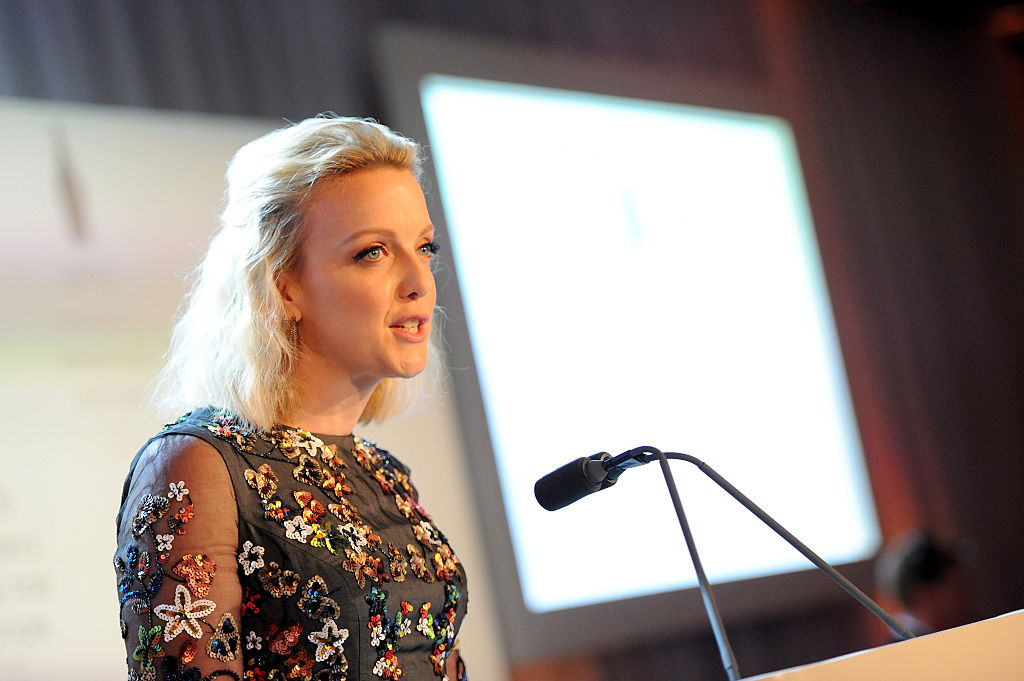Change, for some people, is difficult. Hearing voices on the BBC that differ from the Etonian baritone of old must rankle for some. Lauren Laverne, who took over Desert Island Discs (DID) is about as different from a stuffed shirt as one can imagine. Bright, lively, and witty, her fabulous north-east accent makes Laverne a timely and refreshing addition to Radio 4.
Some of the more traditional radio critics have, in the past, expressed doubts about Laverne’s role as presenter of the iconic programme. But in The Spectator this week, Melanie McDonagh added her voice. “There’s no getting away from it,” wrote McDonagh, “Lauren is lightweight and uncerebral. Her capacity to come up with the forgettable phrase is quite something.”
By referring to Laverne as, “lightweight and uncerebral”, I imagine I’m not alone in suspecting she meant, “northern and populist”. Laverne is one of the few women from the north-east of England with a successful media career. Laverne, from the rough old town of Sunderland, is an exception. I hail from Darlington and am only too aware of how those from that neck of the woods usually only end up in the media if our mugshot is shown on Crimewatch.
Desert Island Discs is a great gig, mused McDonagh, because, being broadcast on, “Sunday morning, somewhere between late breakfast/church and lunch,” means people hold it in high esteem. But what about the growing number of under 35s listening to Radio 4 listening whilst hung over and cooking a fry up? And for the simple reason that they are interested in the person being interviewed. Hell, they may even switch on ( as I do) primarily to hear Laverne.
In 2017, a year before Laverne began hosting Desert Island Discs, I took part in one of the episodes she presented of Late-Night Woman’s Hour. She was superb when hosting the discussion, about feminist activism. She managed to draw out interesting and relevant detail from the contributor that was not a feminist, or an activist, but a member of the Countryside Alliance who was added to the discussion for ‘balance’. As is her talent, Laverne brought out the best in her guests, and seamlessly manoeuvred the conversation away from the less-relevant.
A short while after meeting Laverne, I cheekily emailed her, asking advice on a media project I was embarking upon. Laverne could not have been more helpful and kind. There was nothing in it for her, but she went out of her way to give me advice and put me in contact with people that could help. In today’s dog eat dog media culture, this is both rare and heartwarming.
The suggestion that Laverne is not at ease with classical music, only the ‘popular sort’, amuses me. I’ve no idea whether with cock-rock, or female hip-hop artists of the 1970s are her personal favourites, but I have heard both in the past on the show she now presents.
The truth is that Laverne is charismatic, personable, and breathtakingly gorgeous. She has succeeded in curtailing the elitism and highbrow snobbery inherent to much of Radio 4, and long may that continue.
She won’t be to everyone’s taste, but what presenter is? Melanie McDonagh is entitled to her view: people always feel strongly about the best radio programmes. And they feel strongly about Lauren Laverne, as we have seen from the outpouring of love, respect and appreciation for her that has appeared in response to that article. It should convince the powers that be at the BBC that Laverne is nothing less than a national treasure.







Comments